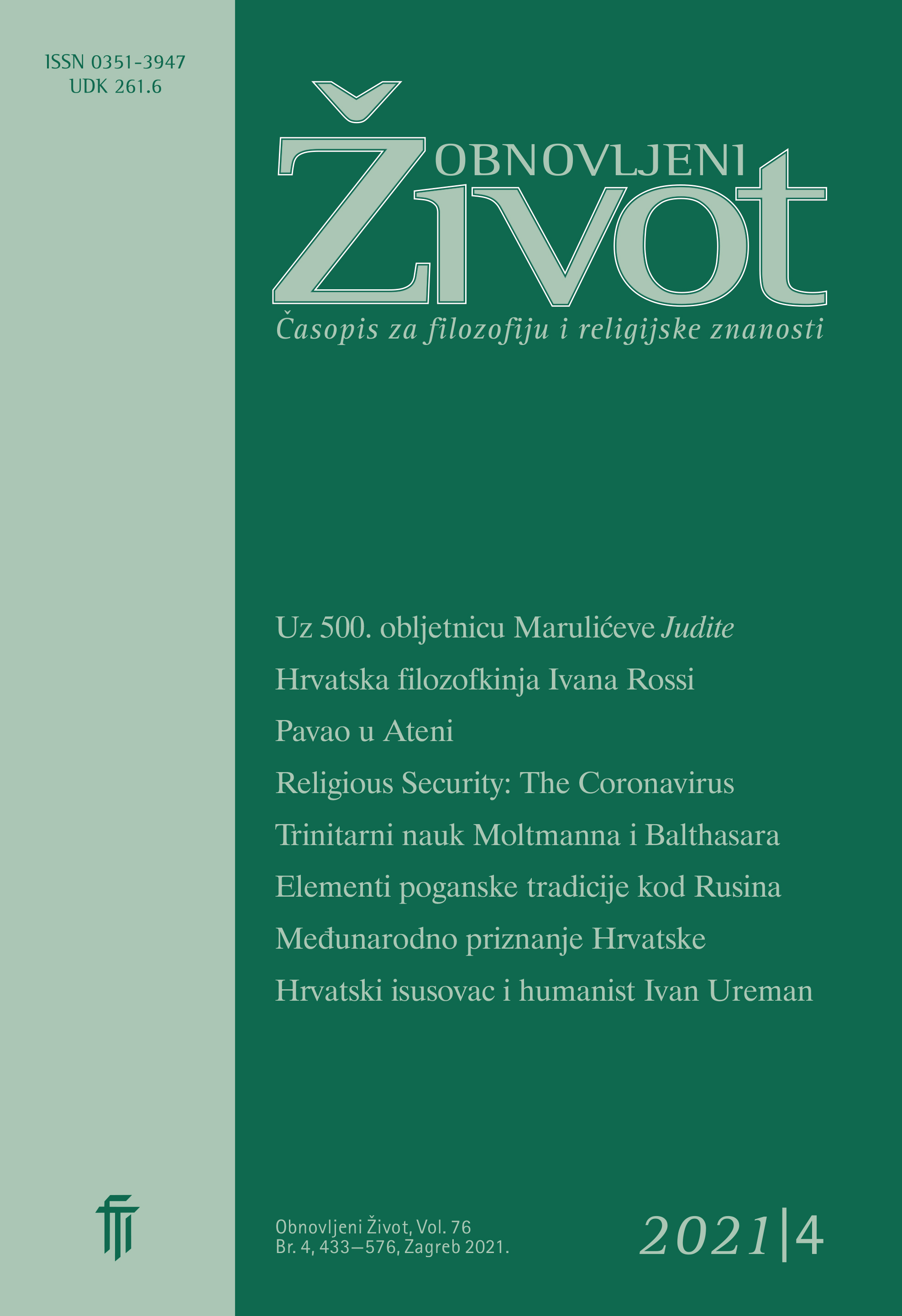Religious Security
The Coronavirus Pandemic and the Identification of New Contexts
Keywords:
religious security, COVID–19, mask, faith, humanityAbstract
The coronavirus pandemic has led to reform in the religious security of the world as a whole. Existing research on the problem is based on approaches that are purely informational and non–systemic, which limits the possibilities of understanding the problem to the context of the “religion–person–state” system. Restrictions on visits to places of worship have to some extent diminished the importance of religious practices. Pandemic threats have called into question the authority of religion and religious figures. The proposed methodological tools make it possible to fully substantiate the criteria of both destructive (which under certain circumstances can be a threat to the national interests of the state, the stable development of society, the exercise of the rights and freedoms of citizens) and constructive cases (the emergence of new communication contexts in which ritual and cult practice can take place) for the development of religious security and its historical genesis in the context of the meaning–forming axis “sacred–profane”, “health–disease”. The coronavirus pandemic, firstly, encouraged religious organizations to adopt new adaptive forms for cult practices; secondly, it changed the approach to religious ministry in society, to the role of the priest in this process; thirdly, it raised the question of the implementation of sacraments and rituals in uncommon circumstances; fourthly, it has exacerbated the issue of ineffective relations between religious organizations both at the interfaith level and at the level of public administration; fifthly, it affected the modernization process of religious communication practices which are not a health threat to the people. These new trends made possible not only the expansion of the functionality of religious security, but also prompted the creation of a flexible, adaptive, open model, which would take into account the regulatory, institutional, resource, and information capabilities of the country, as well as the mentality of the people.
Downloads
Published
Issue
Section
License
Jednom prihvaćeni članak obvezuje autora da ga ne smije objaviti drugdje bez dozvole uredništva, a i tada samo uz bilješku da je objavljen prvi put u Obnovljenom životu. Uredništvo će obavijestiti autora o prihvaćanju ili neprihvaćanju članka za objavljivanje.
Članci objavljeni u časopisu se, uz prikladno navođenje izvora, smiju besplatno koristiti u obrazovne i druge nekomercijalne svrhe.


